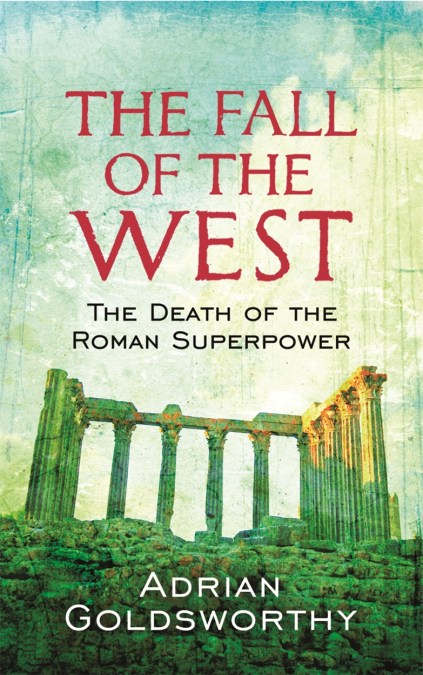A sweeping narrative of the decline and fall of the Roman Empire.
The Fall of the Roman Empire has been a best-selling subject since the 18th century. Since then, over 200 very diverse reasons have been advocated for the collapse of the western half of the Roman Empire. Until very recently, the academic view embarrassedly downplayed the violence and destruction, in an attempt to provide a more urbane account of late antiquity: barbarian invasions were mistakenly described as the movement of peoples. It was all painfully tame and civilised.
But now Adrian Goldsworthy comes forward with his trademark combination of clear narrative, common sense, and a thorough mastery of the sources. In telling the story from start to finish, he rescues the era from the diffident and mealy-mouthed: this is a red-blooded account of aggressive barbarian attacks, palace coups, scheming courtiers and corrupt emperors who set the bar for excess. It is ‘old fashioned history’ in the best sense: an accessible narrative with colourful characters whose story reveals the true reasons for the fall of Rome.
The Fall of the Roman Empire has been a best-selling subject since the 18th century. Since then, over 200 very diverse reasons have been advocated for the collapse of the western half of the Roman Empire. Until very recently, the academic view embarrassedly downplayed the violence and destruction, in an attempt to provide a more urbane account of late antiquity: barbarian invasions were mistakenly described as the movement of peoples. It was all painfully tame and civilised.
But now Adrian Goldsworthy comes forward with his trademark combination of clear narrative, common sense, and a thorough mastery of the sources. In telling the story from start to finish, he rescues the era from the diffident and mealy-mouthed: this is a red-blooded account of aggressive barbarian attacks, palace coups, scheming courtiers and corrupt emperors who set the bar for excess. It is ‘old fashioned history’ in the best sense: an accessible narrative with colourful characters whose story reveals the true reasons for the fall of Rome.
Newsletter Signup
By clicking ‘Sign Up,’ I acknowledge that I have read and agree to Hachette Book Group’s Privacy Policy and Terms of Use
Reviews
Goldsworthy describes this collapse with a strong, clear narrative, not forgetting that history is about stories, individual stories of horror and tragedy, while also describing the wider story.
Goldsworthy describes this collapse with a strong, clear narrative, not forgetting that history is about stories, individual stories of horror and tragedy, while also describing the wider story
Goldsworthy ponders why Rome eventually fell and points to the increasing and obsessive bureaucratisation of the government, the self-interest of political leaders and the target-oriented culture of the state
The implication of Goldworthy's book is that we are now living in a modern version of a late-Roman world - and one about to collapse
Weaves a compelling narrative that has enough new research to keep even well-seasoned "Romaphiles" satisfied





